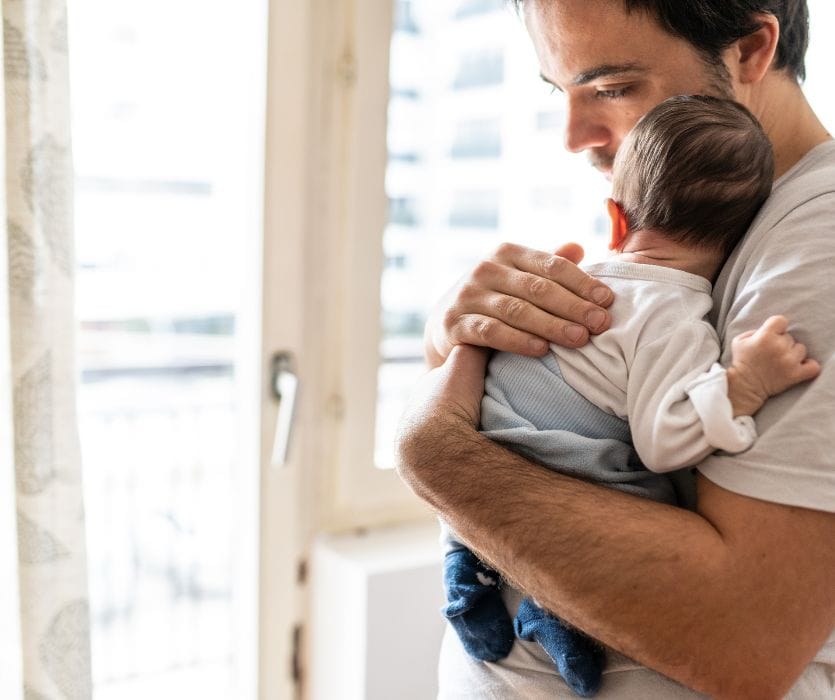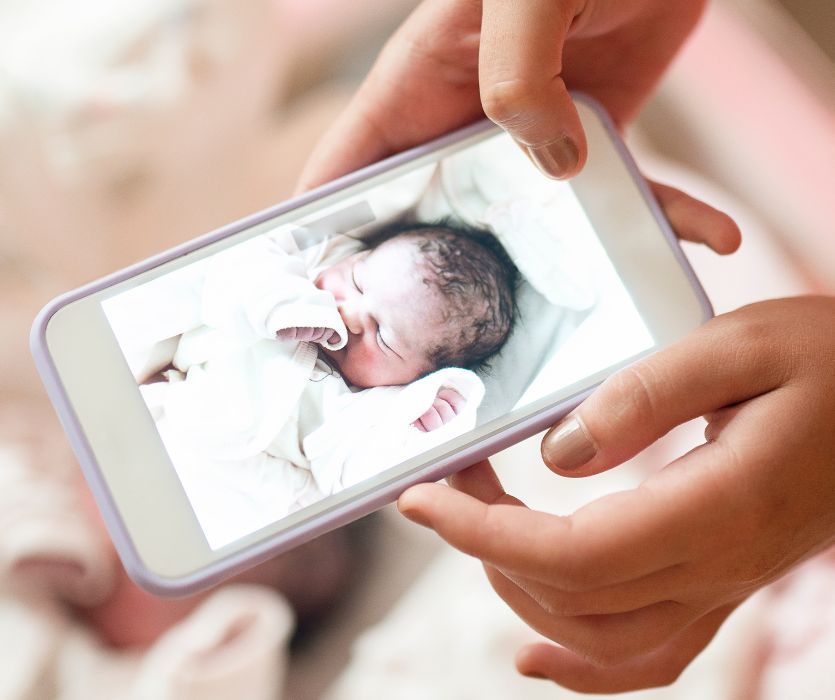Years ago, before I became certified as a perinatal therapist, I was almost offended when I heard Adam Busby from OutDaughtered say he had postpartum depression. I mean, really? He didn't go through pregnancy, childbirth, or the hormonal rollercoaster – so how could he get postpartum depression?
It kind of felt like he was stepping into a space reserved for moms. But you know what? I was wrong. So wrong. And I'm not afraid to admit it. Let me take you on a little journey of what I've learned since then.
Signs of Postpartum Depression in Dads
Research shows that up to 1 in 10 dads deal with postpartum depression. These numbers climb even higher if the mom is also struggling.
While moms might cry more, feel disconnected, or struggle with guilt, dads usually express their depression differently. The time frame for when postpartum depression peaks is also different – for dads, it’s typically between 3 to 6 months after the baby is born.
For many dads, PPD may look like this:
- Irritability: A short fuse, snapping at things that normally would not bother them.
- Exhaustion: Feeling worn out constantly, no matter how much they sleep.
- Disconnection: Feeling detached, even with family around them.
- Avoidance: Burying themselves in work, spacing out into their phones, or finding ways to tune out.
- Risky Behavior: Drinking more, acting aggressively, or taking unnecessary risks.
The sad thing is that dads are much less likely to seek help for postpartum depression, often brushing it off as stress or assuming they just need to "tough it out."
Why I Changed My Tune – The Causes of PPD In Dads
When I became perinatal mental health certified, it completely changed my view of postpartum depression – not just in moms, but in dads, too.
Sure, dads don't grow the baby, but they're dealing with some heavy stuff that can lead to postpartum depression:
- Financial stress. Babies aren't cheap, and neither are the diapers they blow through.
- Emotional weight. Many dads feel a huge pressure to "step up" as providers and protectors, even when they're exhausted and overwhelmed.
- Change in relationship with partner. A baby can turn your relationship into a sleep-deprived game of "Who's Doing It Wrong?" Date nights disappear, and intimacy feels like a distant memory.
- Feeling left out. The bond between mom and baby can leave dads feeling a little lonely.
- Societal pressure. Society acts like men are supposed to “power through,” “stay strong,” and “be the rock.” But let’s face it: even rocks crack under pressure, and last I checked, rocks don’t change diapers at 2 a.m.
When I look back on my reaction to Adam Busby, I cringe. Now I see his openness for what it was: incredibly brave. He gave voice to something many dads feel but are too afraid to admit.
Stress Hormones Don’t Discriminate
Another thing to note is that while dads don’t have estrogen and progesterone playing ping-pong in their bodies, they are not immune to stress hormones – like cortisol. Sleepless nights? Check. Pressure to provide and protect? Check. Feeling like they might be failing? Big check.
Combine that with sleep deprivation, a crying baby, a stressed-out wife, and the pressure of figuring out what kind of parent they want to be, and you’ve got a recipe for PPD.
So, Can Dads Really Get Postpartum Depression?
Absolutely. And the sooner we stop side-eyeing dads who say they have PPD, the better. Parenthood is hard – for everyone. It's okay for dads to say, "Hey, I'm not doing okay." And it’s so important for them to get help. Research shows that when paternal postpartum depression is left untreated, it can have negative effects on the baby’s emotional and behavioral development.
What Can We Do About It?
If you're a new mom reading this, check in with your partner. If they're irritable, distant, or just not themselves, encourage them to talk about it. Therapy is a great option (I'm a little biased, but it works!). There are even support groups for dads now – proof that times are changing.
Sometimes, therapy isn't enough on its own. That’s when medication might be worth considering. Sharing the load is another big one. When responsibilities pile up, it can feel overwhelming for everyone. Dividing up nighttime feedings, household tasks, or errands can relieve some of that pressure.
If you had the mindset that I once had – that dads couldn't possibly get PPD – I hope this article shifted your view. Parenthood is challenging for moms and dads. Recognizing what your partner might be going through is a big step toward supporting each other.
Also check out: Getting Help for Postpartum Depression




Leave a Comment